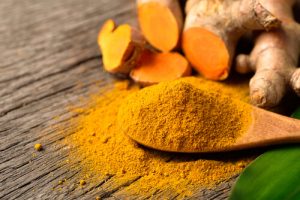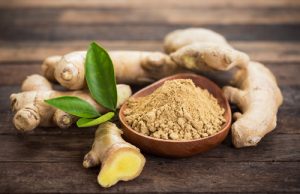Inflammation occurs when the body responds to an injury or infection. Chronic inflammation can cause pain and damage joints, muscles, tissues, and other structures in the body. It can also lead to debilitating medical conditions, such as arthritis.
When you’re suffering from chronic pain, your quality of life decreases. It can interfere with your routine, preventing you from doing your job, driving, or completing household chores.
You may be able to find relief without turning to prescription drugs. Many medications have unpleasant side effects and could do more harm than good.
Although supplements contain natural ingredients, they could negatively interact with prescription medications and even over-the-counter drugs. Supplements can also cause adverse side effects.
Be sure you consult your doctor before starting a supplement regimen. Your physician needs to pinpoint the cause of your pain before determining whether a supplement could help. Some supplements combined with various treatment methods could reduce inflammation and manage pain.
Below are some of the best supplements you could take to relieve inflammation and pain associated with injuries, diseases, and other medical conditions.
Curcumin

The spice turmeric contains a compound called curcumin. It provides various health benefits, including decreasing inflammation caused by cancer, heart disease, diabetes, and other conditions. Curcumin can also reduce inflammation and improve symptoms of rheumatoid arthritis and osteoarthritis.
The body has trouble absorbing curcumin into the bloodstream. Ingesting black pepper with the supplement could boost absorption.
The recommended daily dosage is around 500 milligrams. Symptoms such as diarrhea, headaches, and nausea have been reported while taking higher doses.
Glucosamine
Glucosamine is a natural component found in cartilage. The substance prevents pain and inflammation when bones rub against each other.
Taking a glucosamine sulfate supplement could prevent cartilage from breaking down if you have arthritis. It could also treat joint pain and slow the progression of osteoarthritis.
Taking 1,500 milligrams of glucosamine sulfate once a day is typically the recommended dose. However, if you experience an upset stomach, you could take three doses of 500 milligrams instead.
Fish Oil
The omega-3 fatty acids in fish oil supplements offer a variety of benefits for overall health. Omega-3 fatty acids have been found to decrease inflammation associated with heart disease, diabetes, and other diseases.
The two main omega-3s found in fish oil are docosahexaenoic acid (DHA) and eicosapentaenoic acid (EPA). DHA can have anti-inflammatory effects on the body, promoting gut health and reducing cytokine levels. It can also decrease muscle damage and inflammation following exercise.
A safe dose of fish oil should include less than two grams of combined EPA and DHA. Common side effects are heartburn, gastrointestinal upset, bad breath, and fishy burps. If you’re taking a blood thinner or have a compromised immune system, you should discuss with your doctor whether it’s a good idea to begin a fish oil supplement regimen.
Chondroitin
Chondroitin is another component of cartilage, much like glucosamine. Clinical studies have shown taking chondroitin could reduce joint stiffness and pain caused by osteoarthritis. It could also prevent cartilage breakdown.
Long-term use of the supplement might also slow the progression of osteoarthritis.
Supplements to relieve pain and inflammation associated with joint problems often combine glucosamine and chondroitin.
The recommended dosage of chondroitin is typically between 400 and 800 milligrams two to three times a day.
Ginger

Ginger root is a common ingredient in hummus, fried rice, stir fry, and many other delicious cuisines. It’s also a natural remedy used to treat nausea, indigestion, and morning sickness during pregnancy.
Gingerol and zingerone are two components of ginger that might reduce inflammation from type 2 diabetes and additional health conditions.
The results of one particular study showed that breast cancer patients taking a ginger supplement had lower levels of CRP and IL-6 inflammatory markers than individuals in the placebo group.
It’s safe to take up to two grams of ginger each day. Anything higher could affect the blood and cause it to thin. This effect can become life-threatening if you’re taking a blood thinner at the same time.
Boswellia
You could find some relief from the pain associated with arthritis by taking Boswellia. Chemicals in Boswellia acid extract have anti-inflammatory effects and could improve pain symptoms caused by osteoarthritis.
You could take a dose between 100 milligrams once a day up to 333 milligrams three times a day if you’re using the supplement to alleviate joint pain.
Vitamin D
Vitamin D not only plays a role in supporting a healthy immune system but also could reduce inflammation. Some studies have found a link between inflammation in the body and low levels of Vitamin D.
If you’re taking a Vitamin D supplement long-term, you shouldn’t exceed 4,000 IU each day. Fat cells store fat-soluble vitamins, including D, and the vitamins could build up and lead to toxicity.
Contact Us
If you’re experiencing pain and inflammation, contact AllCare Health & Pain immediately. We can perform an examination to diagnose your condition and determine the available treatment options. You deserve to find relief for your chronic pain so you can manage the symptoms of your disease or injury and resume a better quality of life.
Call us today at 201-386-9800 for an appointment with an experienced pain management specialist.

